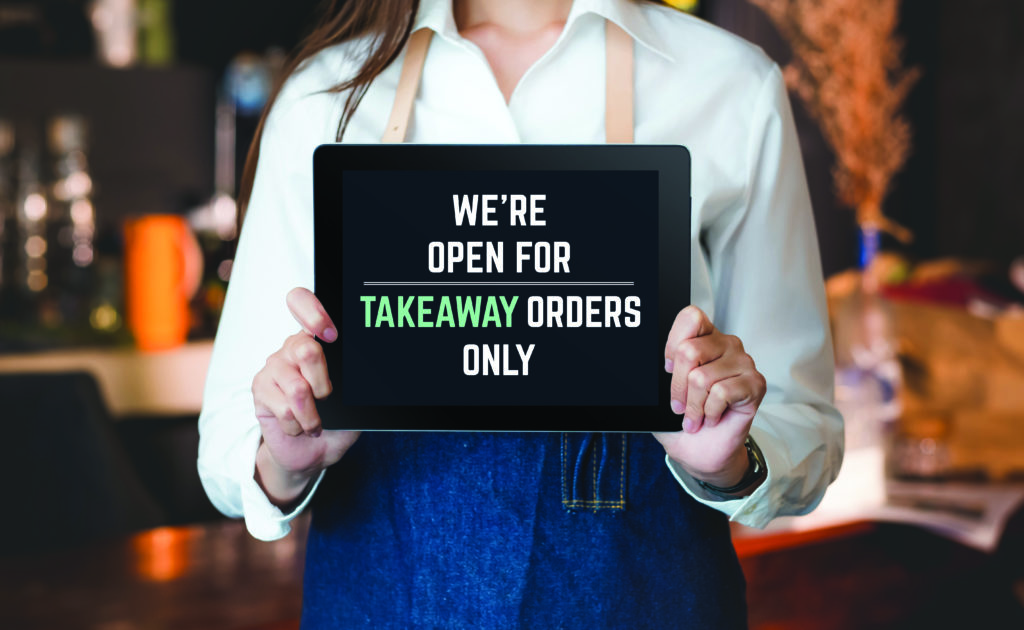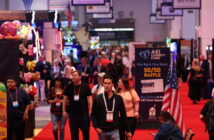The Long Road Ahead
Future Consequences for an Industry in Lockdown
 by Kevin Williams, International Immersive Technology Special Correspondent
by Kevin Williams, International Immersive Technology Special Correspondent
The repercussions of the global health crisis across all aspects of the out-of-home entertainment industry have been cataclysmic. But the reality of the entertainment industry is that it will endure, and while the landscape will be irrevocably changed, there will still be a business. At this time, the first week of April, most of the global location-based entertainment industry has been temporarily closed –– along with hospitality, retail and non-essential businesses –– in compliance with governmental restrictions to stop the spread of the COVID-19 virus.
With an industry in self-isolation, the need to make some sense of what is happening and its eventual impacts across the industry has been sought, and like others, our consultancy (KWP) has been working hard to provide advise and direct clients on the expected upheaval from what is seen as an incredible “Black Swan” event (an incident that appears as a surprise and has a major effect across business and national economies).
With the amusement entertainment industry facing a lockdown of an undetermined length, we have gathered information to get a sense of those territories that are ahead of us in the disease curve, emerging from their isolationism and reopening their businesses.
We need to be mindful of the example being seen from other territories that were the first to enforce lockdown of their entertainment scene, but now having borne the brunt of the pandemic are tentatively raising their restrictions. Both Beijing and Shanghai started in the first weeks of April to allow certain entertainment venues to reopen for business – but under new restrictions. These operators entered a “new normal,” deploying increased numbers of sanitization stations around their sites, while local government guidelines directed the numbers of guests that could gather at one time. Even these directions are subject to change, as seen in China. There, after reopening certain cinema and entertainment venues in March, they were suddenly and without reason ordered to be closed a few days later. Speculation on the reason centered on concerns of a spike in new cases, illustrating the point that the return to normalcy is going to be a long and gradual process.
A phrase has been coined in some circles as “the perfect storm,” referring to the appearance of this calamity just at a point when some operations are at their most vulnerable. This can be best seen regarding how the movie theater sector has buckled under the closing of their businesses, furloughing thousands of employees. The largest of the chains, already suffering from impacted revenues from declining ticket sales, are now faced with issues regarding liquidity. Some analysts are speculating that certain large chains such as AMC Entertainment may be unable to survive if the lockdown continues into mid-summer. The COVID-19 pandemic will see a tempest of conditions that many theater businesses will not be able to weather.
It is these conditions that the street route and amusement facility sails into. The layer of “financial-fat” that these independent operations need to survive extended times of closure is nonexistent for many. It is also expected that the post-lockdown business climate will be one of massive change in the habits of the audience.
The issue of enforced isolationism has created an audience that will have incredible calls on their limited remaining disposable income. While vacations and lavish dining will have to be curtailed, simple escapism will continue no matter what. As has been coined by some, a “Super Staycation” period may emerge in the short-term with audiences looking for cost-effective entertainment closer to home. This presents an opportunity for the street route and amusement facility scene to reinvent themselves as society emerges from the gloom, attracting an audience that will be drawn to a more down-to-earth playing environment.
For the larger, mixed-use entertainment venues within the FEC and LBE sector, something to consider is the inclusion of a major hospitality element to their mix. While many entertainment venues provide refreshments, the entertainment destination has championed such slogans as “Play+Eat+Drink.” Franchises such as Main Event, Dave & Buster’s and Round 1 are just three of the operations that have calved a business from the mixing of entertainment with hospitality.

Likewise, the restaurant industry has also shared the privations of the enforced quarantine, seeing their business forced to only survive in some areas by providing takeout or delivery, while others have just shuttered. Chains such as Punch Bowl Social have become victims of newly established partnerships. This chain of social entertainment venue was dumped by their newly acquired partner, the Cracker Barrel Old Country Store as it became focused on its own core business survival, abandoning Punch Bowl Social and leaving them in a desperate plight to find an alternative investor in order to remain afloat.
Post-pandemic, the realities for all dining locations will be a massive reduction in the number of covers (table places to accommodate guests). This was outlined by the Centers for Disease Control (CDC) in a report regarding the February COVID-19 outbreak in a restaurant in Guangzhou, China. The issues of air conditioning and its impact on the spread saw recommendations for increasing the distance between tables and improving ventilation. The new normal being fewer, and wider dispersed, patrons. In this new landscape, the need to improve the “eatertainment” offering will see serious investment across the sectors.
Speaking of franchise facilities in this sector, one of the leaders, Dave & Buster’s, has been on the lips of many of the investment speculators. Along with being a perfect storm, the current global health crisis is no respecter of perceived business size. In the theme park industry, corporations such as The Walt Disney Company have been seen acquiring massive bridging loans to secure their survival. And, as mentioned, cinema leader AMC has found themselves incredibly vulnerable.
This is no different for the FEC and LBE industry leaders. The financial media has been keen to circle D&B, noting the cancelation of future facility construction and the impact of furloughing almost their entire staff. Calculating only 15 weeks of liquidity, new investment is a priority to remain in business.
One trend within the pre-pandemic LBE industry was the explosion in interest in VR deployment, the immersive entertainment phenomenon that had seen most amusement distributors double down on representing this to their customers. As seen at the last pre-shutdown trade gathering, the Amusement Expo International in March, there is a profusion of new platforms and categories ranging from “Virtual Ride Simulators,” “VR Amusement” and “Self-Service VR Kiosks” to “VR Enclosures,” “VR Escape Games” and “Arena Scale VR,” to just cover the leading deployments.
Some may have questioned if the after-lockdown audience would be still there for VR systems with its sharing of headsets. The reality is that the interest in VR has continued, fueled by social media and the consumer sector. Live streaming of the latest VR game experience (Half Life: Alyx from Valve) has broken records on social media with a game that many of those exiting enforced isolation will only be able to play at those VR arcades when they re-open. How the emerging VR entertainment industry presents itself going forward will define if they will survive the inevitable turbulence for the business.
The need to share best practices in operating VR hardware will continue to grow as more operators offer this entertainment. The VR arcade scene has seen the sharing of support and information, as well as best practices. Hygiene is a prominent concern in the presentation and operation of this technology. Developers of service and support elements for operating VR have been deploying UV-C light systems to decontaminate hardware. Companies such as Cleanbox Technologies (see the feature story on page 41), which launched long before this crisis, are in place to support the increased deployment of this platform into the business.
An atmosphere of mutual support has illustrated the best attributes of the entertainment industry in the face of diversity, and companies such as SpringboardVR, an LBE VR management platform and content distributor, have waived their subscription and content distribution fees for impacted customers during this period of lockdown. Creative Works has deferred payment on support and warranty on their range of attractions. These are just two of numerous corporations that are working hard to support the re-emergence of the business post-pandemic. Many others, along with our trade associations, are supporting their local communities in many other ways.
The reality is that while times are hard, the situation is not insurmountable. The entertainment industry is positioned to benefit the most from the enforced isolation that a global audience is enduring.
In the short term, the industry will have to manage this time of enforced incarceration to prepare themselves for their new future. Those that are prepared are looking to redefine their offerings and increase their promotion in a post-lockdown market that will see competition to obtain a much smaller disposable income. The social distancing of entire populations has proven the dependence of the internet in our everyday lives – and the loss of innocence for those still attempting to ignore its immense influence on our work and recreation. The increased consumption of video on demand as an alternative to visiting the cinema, or televised virtual sports filling in for the lack of the real thing, are changes to the social norm that look like they are here to stay.
But for the out-of-home entertainment landscape, a new dawn awaits. Many are despondent about the world after lockdown, concerned for the financial burden and inevitable spate of closures, mergers and acquisitions that financial turmoil will bring. Others are intrepid, seeing the reality that the audience that will be emerging from their enforced isolation will be filled with a hunger for escapism and entertainment that will cure their inevitable “cabin fever.” It is the amusement and leisure entertainment industry, and its future innovation, that is in a unique position to be the conduit to allow people to let off steam and reconnect, once again being able to provide the best immersive social entertainment.

Kevin Williams is a leading authority in the digital out-of-home entertainment industry through his consultancy KWP Limited and specializes in interactive entertainment. He’s had an extensive career in the theme park, amusement and entertainment software industries, and was once a Walt Disney Imagineer. Kevin is well known for his news service, The Stinger Report, that he boasts “has become a must-read for those working or investing in the international market.” He is a prolific writer with regular columns for the main trade publications in this market and is a frequent presenter of conference sessions on the sector and its global impact. He is also the co-author of what he says is the only book on this aspect of the market, The Out-of-Home Immersive Entertainment Frontier, and is working on the next edition, scheduled for publication soon. Kevin can be reached at [email protected]


